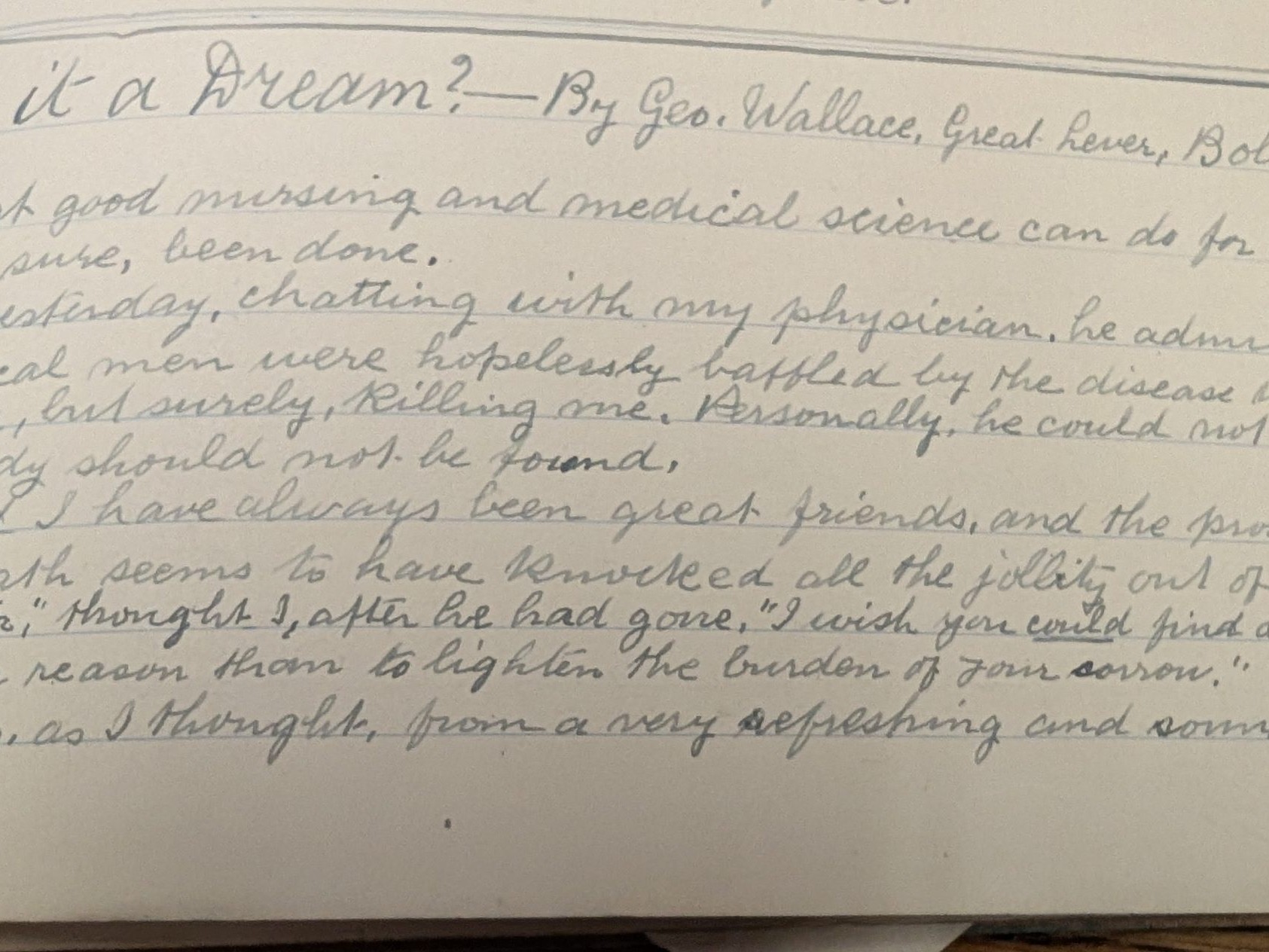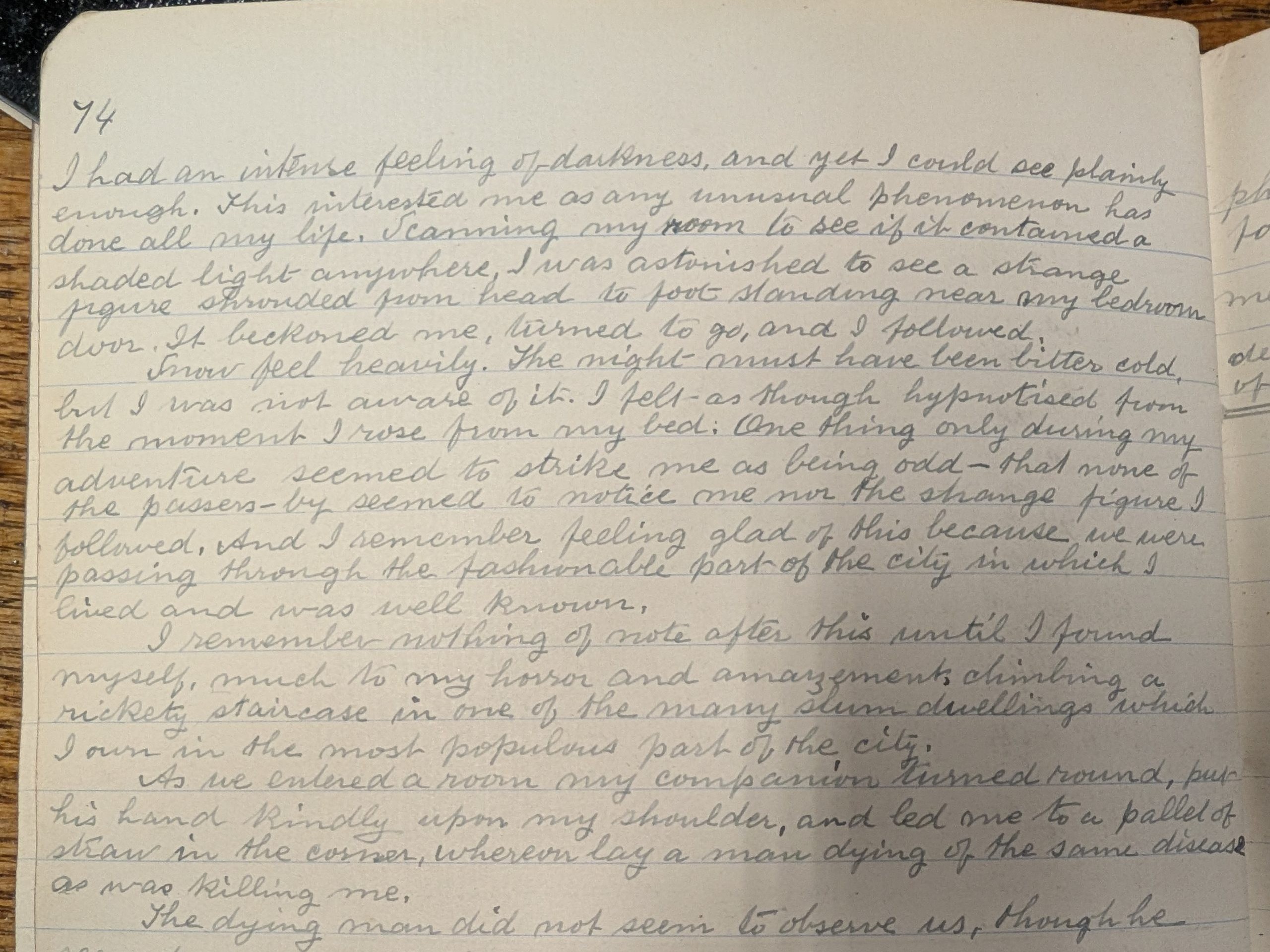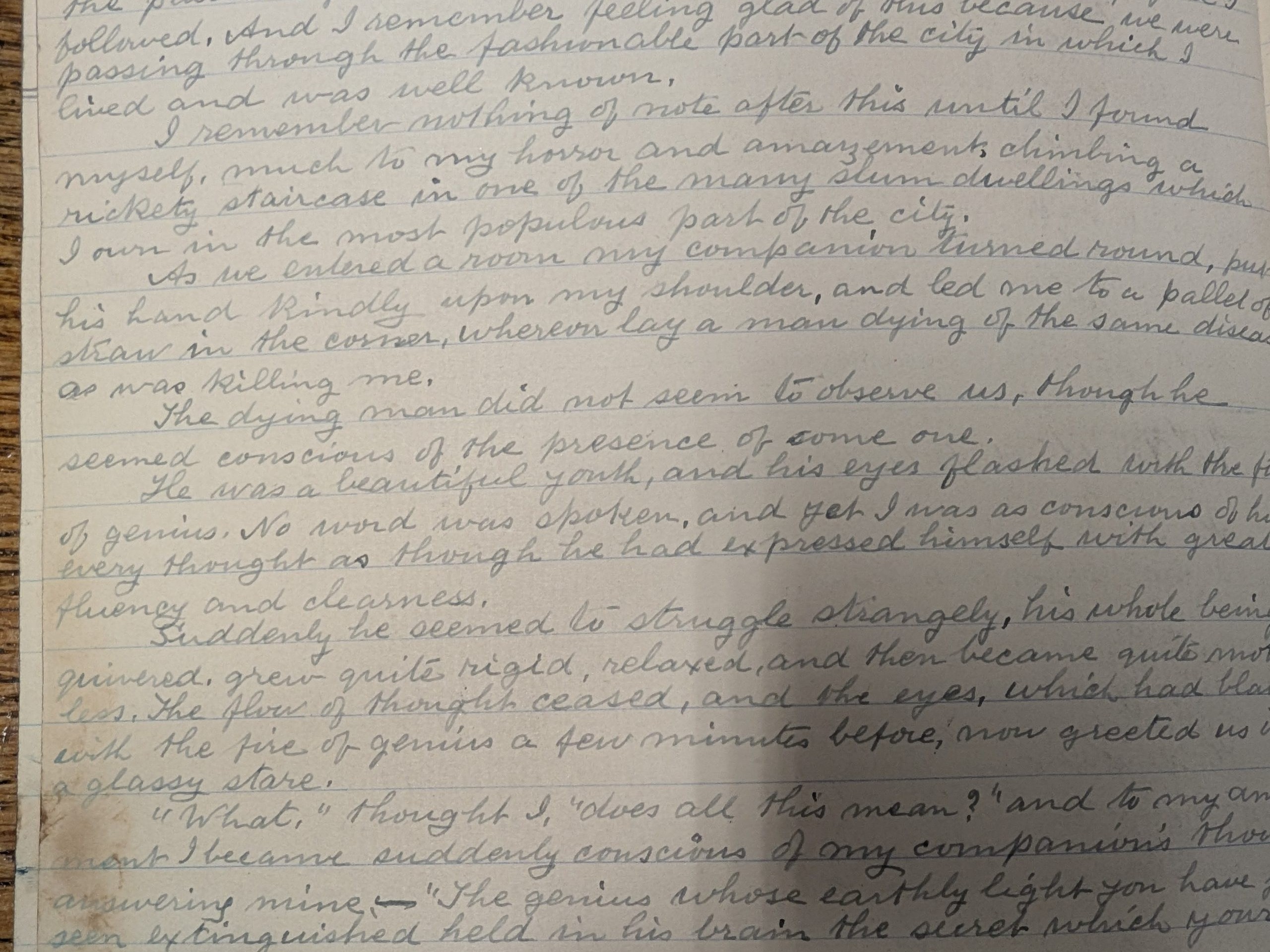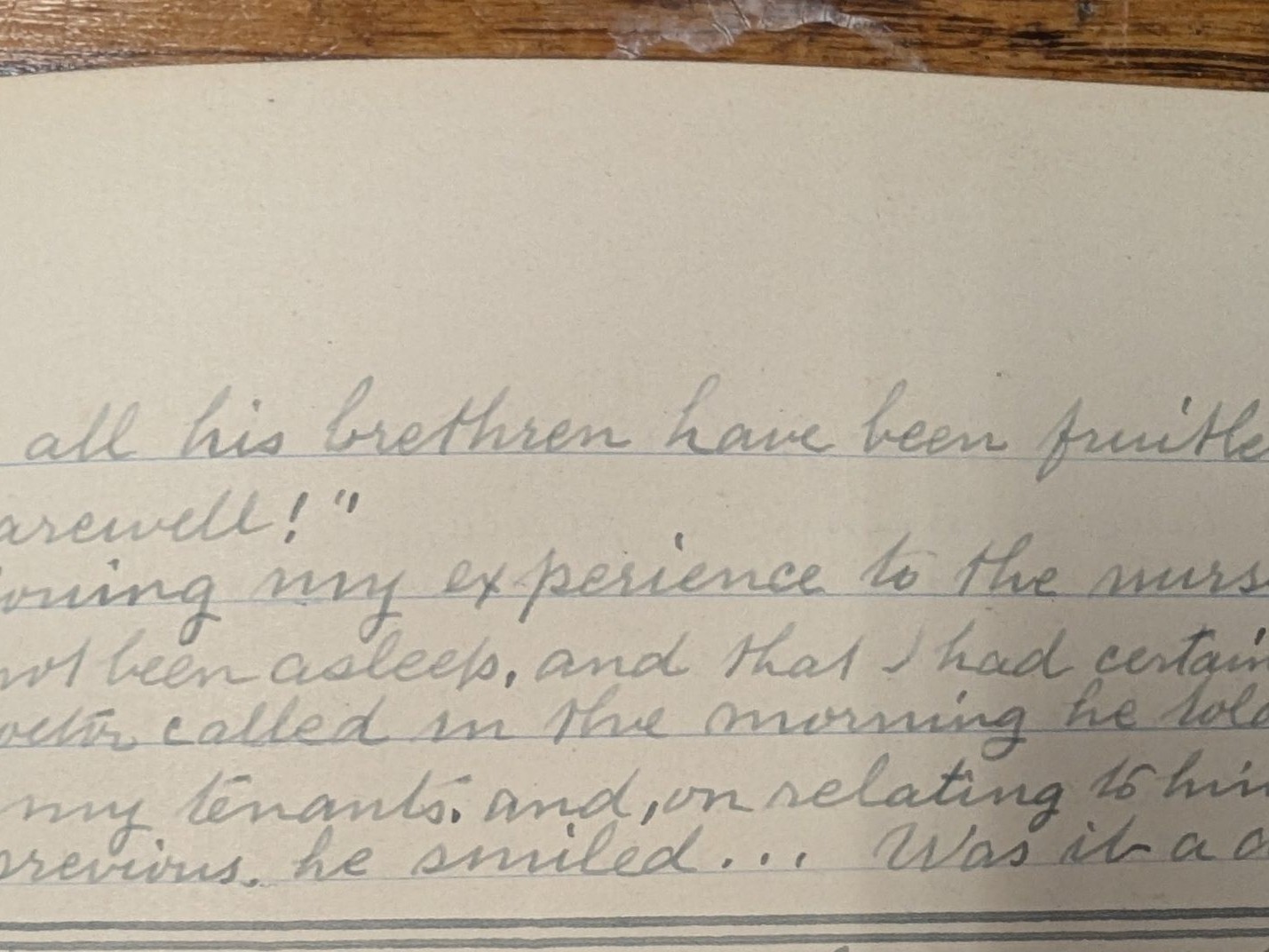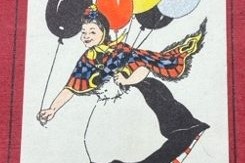Exploring the University Library archives, I discovered several boxes tucked away containing stacks of old fragile ledger notebooks. I had unwittingly stumbled across the entire back catalogue of the Lancashire Authors’ Association Collection: an amazing collaborative collection of literary works by ordinary Lancastrians dating back to the early 1900s.
The Lancashire Authors’ Association founded the Red Rose circulating magazine in 1917, sharing poetry and short stories from LAA members. One of the first entries of the inaugural issue is a Dickensian-style short story titled “Was it a Dream?” written by Geo. Wallace of Great Lever.
Below I have transcribed his story followed by a review of the work from a contemporary contributor.
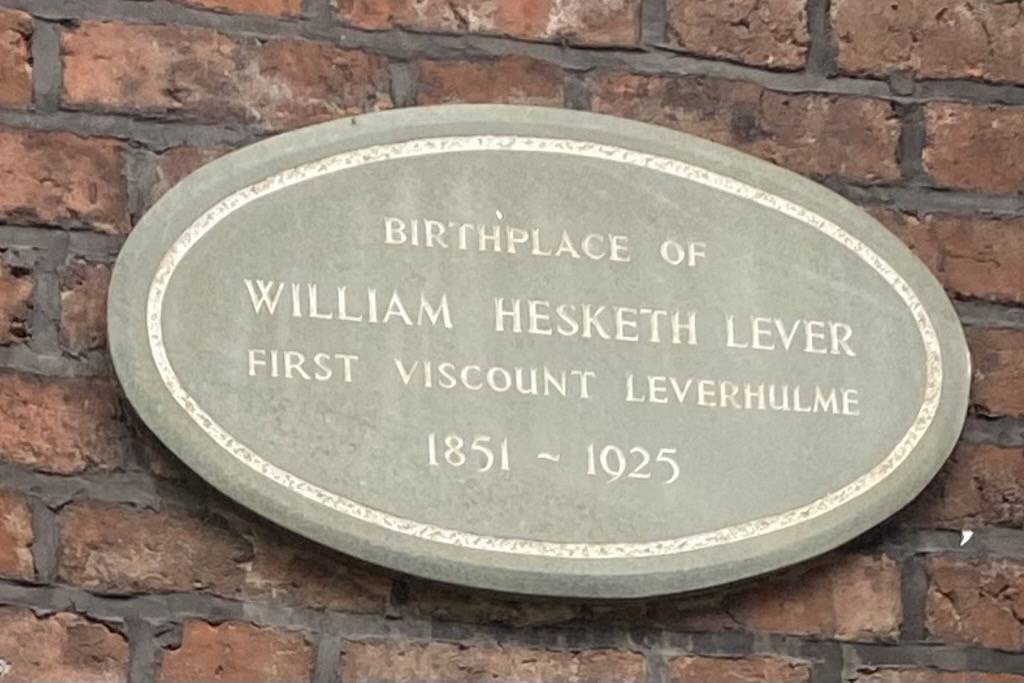
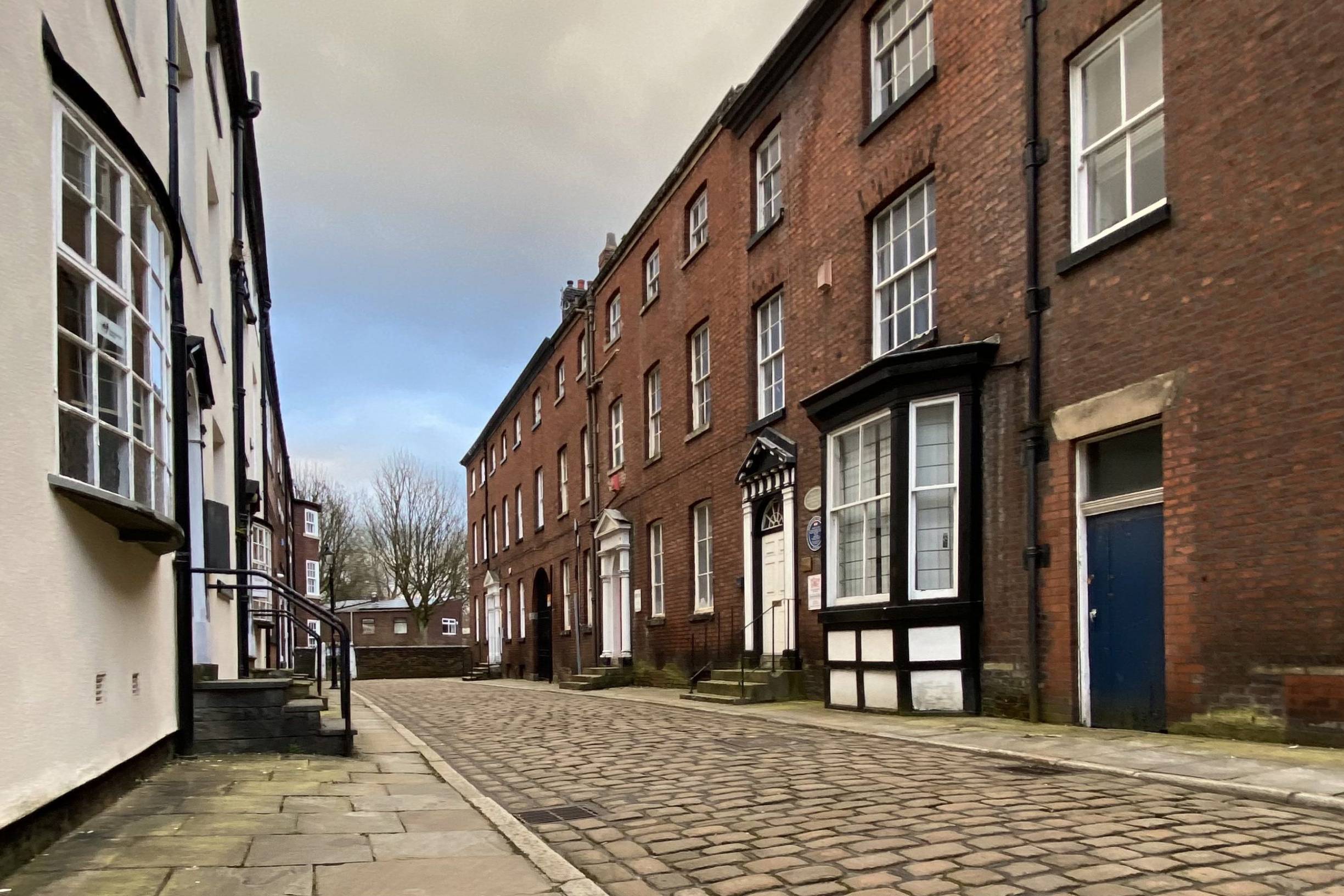
‘Was it a Dream?’ by Geo. Wallace, Great Lever, Bolton. (Red Rose, Issue. 1, 1917)
All that good nursing and medical science can do for one has, I feel sure, been done. Only yesterday, chatting with my physician, he admitted that medical men were hopelessly baffled by the disease which was slowly, but surely, killing me. Personally, he could not see why a remedy should not be found. He and I have always been great friends, and the prospect of my early death seems to have knocked all the jollity out of him. “Poor doctor”, thought I, after he had gone. “I wish you would find a remedy if for no other reason than to lighten the burden of your sorrow.”
Awaking, as I thought, from a very refreshing and sound sleep, I had an intense feeling of darkness and yet I could see plainly enough. This interested me as many unusual phenomenon has done all my life. Scanning my room to see if it contained a shaded light anywhere, I was astonished to see a strange figure shrouded from head to foot standing near my bedroom door. It beckoned me, I wished to go, and I followed. Snow fell heavily. The night must have been bitter cold but I was unaware of it. I felt as though hypnotised from the moment I rose from my bed. One thing only during my adventure seemed to strike me as odd – that none of the passers by seemed to notice me nor the strange figure I followed, and I remember feeling glad of this because we were passing through the fashionable part of the city in which I lived and was well known.
I remember nothing of note after this until I found myself, much to my horror and amazement, climbing a rickety staircase in one of the many slum dwellings which I own in the most populous part of the city. As we entered a room my companion turned round, put his hand kindly upon my shoulder, and led me to a pallet of straw in the corner, whereon lay a man dying of the same disease as was killing me.
The dying man did not seem to observe us, though he seemed conscious of the presence of someone. He was a beautiful youth, and his eyes flashed with the fire of genius. No word was spoken, and yet I was conscious of his every thought as though he had expressed himself with great fluency and clearness.
Suddenly he seemed to struggle strangely, his whole being quivered, grew quite rigid, relaxed and became quite motionless, the flow of thought ceased, and the eyes, which had blazed with the fire of genius a few minutes before, now greeted us with a glassy stare.
“What,” thought I “does all this mean?” and to my amazement I became suddenly conscious of my companion’s thoughts answering mine, – “the genius whose earthly light you have just seen extinguished held in his brain the secret to which your physician and all his brethren have been fruitlessly seeking for so long. Farewell!”
On mentioning my experience to the nurse she assured me I had not been asleep, and that I had certainly not left my bed. When the doctor called in the morning he told me of the death of one of my tenants, and, on relating to him my adventure of the night previous, he smiled … Was it a dream?
Review, by Alfred H. Pearce (Red Rose, Issue 1, 1917)
A powerful little sketch of which the moral is delicately conveyed, possibly almost too delicately. Unless the reader is very attentive, he is apt to miss it at first.
Mr Wallace is well known as a public performer and writer, and there is little doubt that sketches from his pen, such as the one under notice, have done valuable work.
The review itself seems to point to the stories “delicately conveyed” moral message that could be missed on first reading the story. Personally, I feel the moral must be based around the advocation of better living conditions for the poor, in the early nineteen hundreds, but what did you make of it?
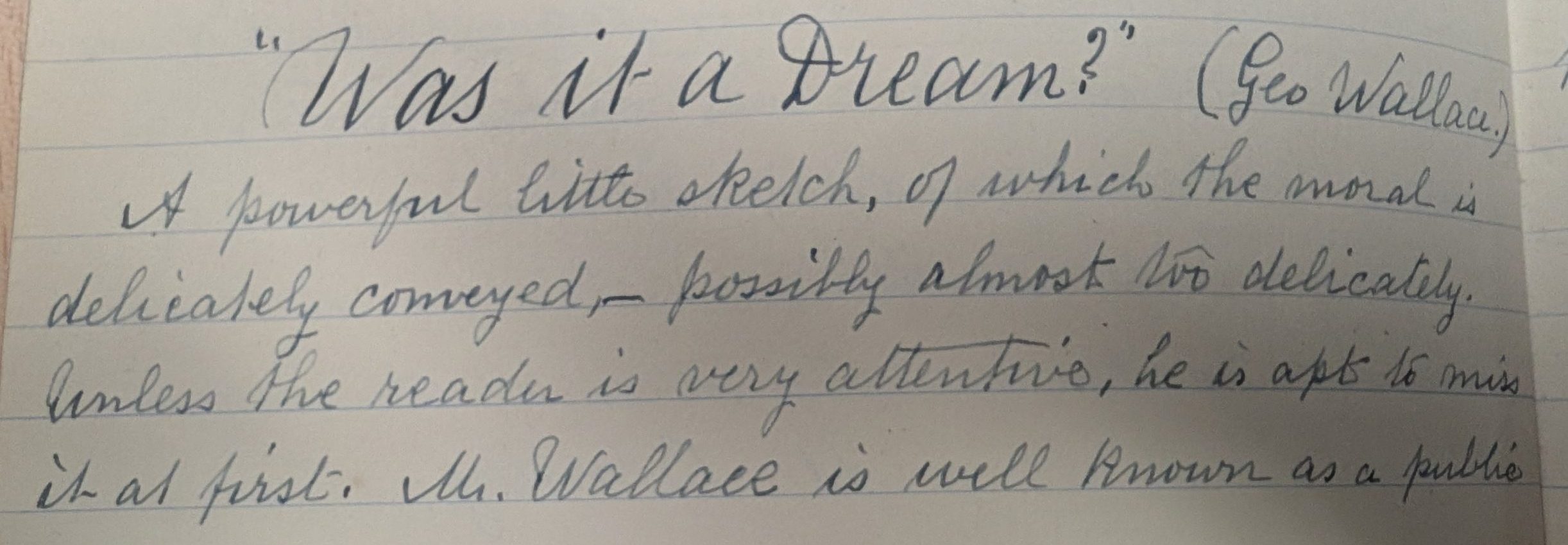
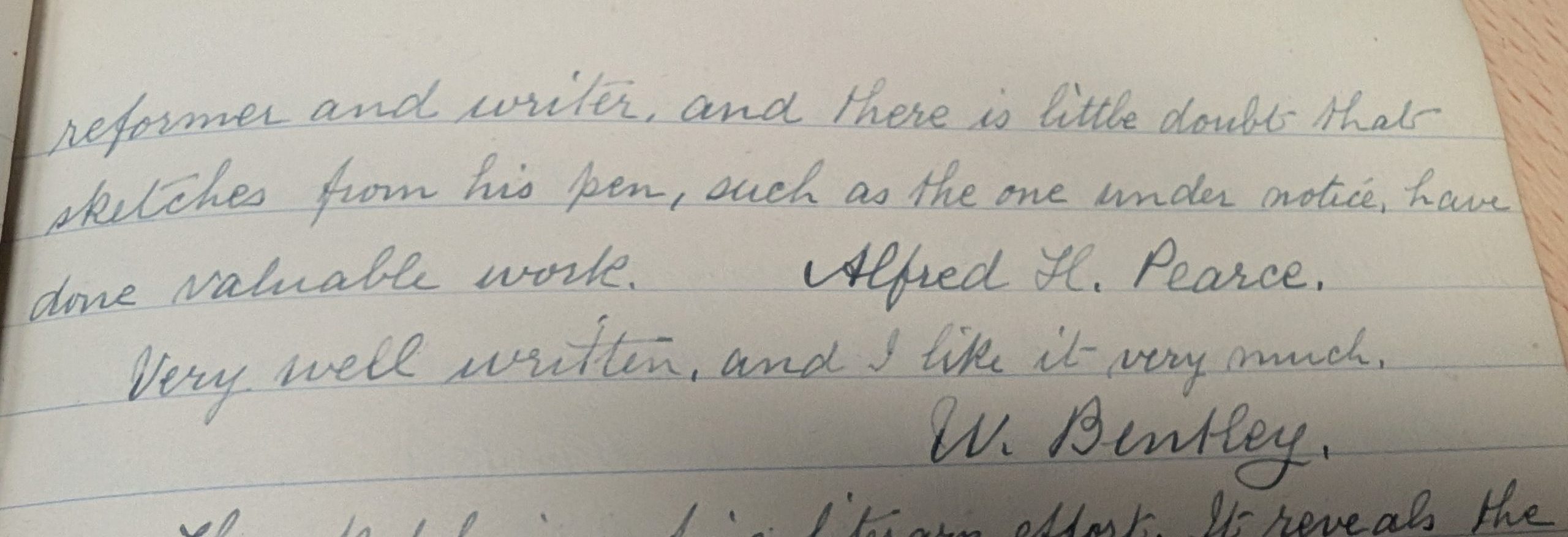
Bibliography
Pearce, A. H. (1917) Review: Was it a Dream? Red Rose, (1), pp. 73-75.
Wallace, G. (1917) Was it a Dream? Red Rose, (1), n.p.
Bibliography
Colby, Robert A. (1985) “Tale Bearing in the 1890s: The Author and Fiction Syndication”. Victorian Periodicals Review. Vol.18, No.1, pp. 2-16.
Hilliard, Christopher (2009) “The Provincial Press and the Imperial Traffic in Fiction, 1870s-1930s”. Journal of British Studies. Vol.48, No.3, pp. 653-673.
Johanningsmeier, Charles (1995) “Newspaper Syndicates of the Late Nineteenth Century: Overlooked Forces in the American Literary Marketplace”. Publishing History. Vol. 37, No.1, pp. 61-82.
Jones, Aled (1984) “Tillotson’s Fiction Bureau: The Manchester Manuscripts”. Victorian Periodicals Review. Vol.17, No.1, pp. 43-49.
Singleton, Frank (1950) Tillotson’s 1850-1950: Centenary of a Family Business. Bolton: Tillotson & Son Ltd.



